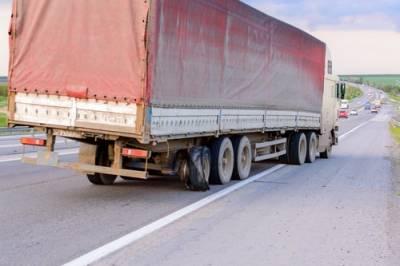
 Commercial truck accidents can have devastating consequences, and they are likely to result in severe injuries and property damage for people in other vehicles involved in a collision. While there are various factors that can contribute to these accidents, mechanical failures are some of the most common reasons why truck drivers may lose control of their vehicles and collide with other cars and trucks. When the mechanical components of a commercial truck fail, devastating accidents can occur due to the massive size and weight of these vehicles.
Commercial truck accidents can have devastating consequences, and they are likely to result in severe injuries and property damage for people in other vehicles involved in a collision. While there are various factors that can contribute to these accidents, mechanical failures are some of the most common reasons why truck drivers may lose control of their vehicles and collide with other cars and trucks. When the mechanical components of a commercial truck fail, devastating accidents can occur due to the massive size and weight of these vehicles.
Commercial trucks are complex vehicles with numerous components working together to ensure safe operation. However, due to the large weight of trucks and the amount of time they remain in operation on a constant basis, a great deal of stress is placed on these components. If a truck is not serviced regularly, and if parts are not repaired or replaced when necessary, vital components can break down and cause a driver to lose control of the vehicle.
Some common types of mechanical failures that can contribute to commercial truck accidents include:
Tire blowouts: A truck’s tires can wear down over thousands of miles of travel, and they may deflate or even explode. When tires blow out while a truck is traveling at a high speed, this can result in a loss of control or even a rollover accident.
Brake failure: Faulty air brake systems or worn-out brake pads will significantly increase the distance needed for a large truck to slow down and stop. This may lead to rear-end collisions or other dangerous accidents.
Suspension issues: Inadequate suspension systems may affect a truck's stability while driving over bumps or uneven terrain, negotiating curves, or in other situations. This can make it difficult for a driver to maintain control and avoid collisions.
Faulty steering mechanisms: Issues with steering systems, such as loose steering linkage or power steering failure, could cause a truck to suddenly veer off the road or into other lanes without warning.
Damaged lights and reflectors: Malfunctioning headlights, tail lights, or other lights on a truck or trailer can reduce visibility for truck drivers and other motorists sharing the road.
Understanding the causes of mechanical failures is essential for those who have been involved in truck accidents, since this can establish liability and ensure that victims will be able to pursue compensation for the damages they have suffered. Some factors that contribute to commercial truck mechanical failures include:
Poor maintenance: Neglecting regular inspections or failing to address necessary repairs and replacements may cause a truck’s parts to malfunction.
Manufacturing defects: In some cases, crucial components on a commercial truck may be faulty, and they may break down and cause a driver to lose control.
Inadequate training: Insufficiently trained drivers who are not equipped with proper knowledge about truck maintenance may miss the signs of potential mechanical problems.
Overloading: Exceeding a commercial truck's maximum weight limit puts excessive stress on tires, brakes, suspension systems, and other components. This can lead different parts to fail, resulting in dangerous accidents.
When maintenance issues or the failure of a truck’s systems contribute to a commercial truck accident, victims will need to understand who was responsible and who may be held liable for their damages. Depending on the circumstances surrounding the accident, multiple parties could be held responsible, including:
The driver: If a truck driver failed to conduct routine checks or ignored warning signs indicating a mechanical problem but continued driving anyways, they could be held liable for the accident.
The trucking company: Depending on whether a truck was owned by a trucking company or a driver, it may be possible to hold a company responsible for failing to ensure that a truck was properly maintained and that a driver followed the correct safety protocols. It may also be possible to hold a trucking company liable for the negligence of drivers or other employees.
Maintenance providers: If a driver or trucking company relied on mechanics or other experts to perform maintenance on a truck, those parties may be liable for failing to properly maintain the truck’s equipment.
The parts manufacturer: If a faulty part was responsible for the mechanical failure, the manufacturer may be liable for accidents caused by design or manufacturing defects.
Victims of trucking accidents may have a variety of legal options for addressing the injuries and damages they have suffered. At Kinnally Flaherty Krentz Loran Hodge & Masur P.C., our skilled Kane County commercial truck accident lawyers can evaluate the facts of a case to determine who may be held liable for an accident. We work to help victims of truck accidents achieve justice and recover financial compensation for their damages. If you have been hurt in a truck crash, do not hesitate to contact us today at 630-907-0909 to schedule a free consultation and learn how we can help you.
Sources:
https://www.samsara.com/guides/preventive-maintenance-checklist-for-semi-trucks/
https://www.cloudtrucks.com/blog-post/preventative-maintenance-schedule-checklist
https://www.commercialtrucktrader.com/blog/2022/03/14/9-common-big-rig-problems-repairs/